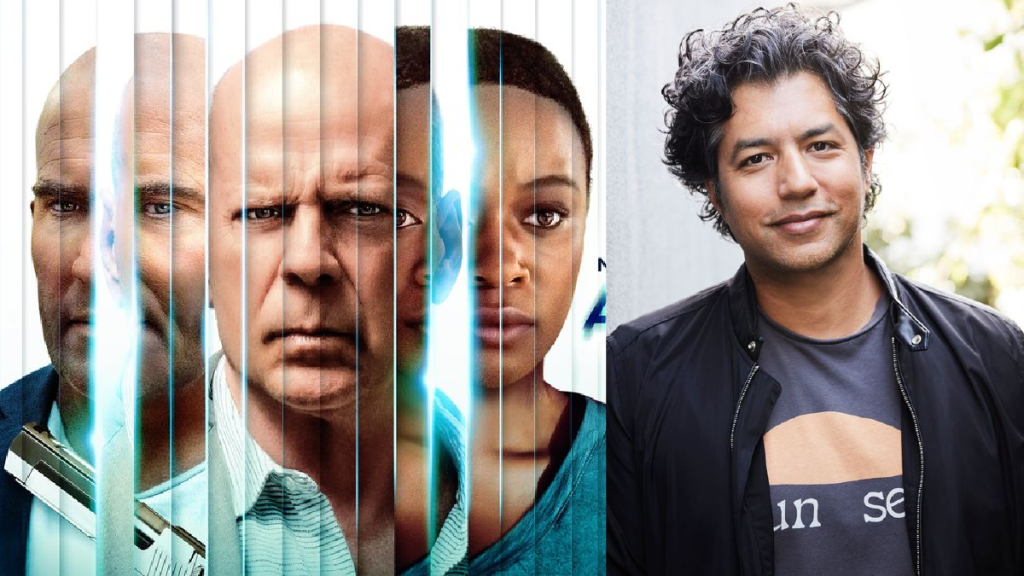ComingSoon was given the opportunity to speak with composer Mark Tewarson about his score for the action thriller Assassin.
“A private military operation invents a futuristic microchip technology that enables the mind of an agent to inhabit the body of another person to carry out covert, deadly missions,” reads the synopsis. “However, when an agent gets killed during a secret mission, his wife takes his place in an attempt to bring the man responsible to justice.”
Directed by Jesse Atlas, Assassin stars Bruce Willis, Nomzamo Mbatha, and Dominic Purcell.
ComingSoon: What led you to become a composer?
Mark Tewarson: I studied composition in college and loved it. Then, early in my career as a guitarist, I would get hired as a session musician by composers, and I thought it looked like a great gig! I managed to get my first jobs in the commercial world.
Were there specific individuals in the field who influenced your style?
Several, so many of the greats influence me in different ways. These days I’m on a big Giacchino and Johan Johansson kick. But of course, John Williams, Hans Zimmer, and Danny Elfman were big influences as well.
How has your technique/style evolved over the years?
Certainly my technique and ability to write efficiently and effectively has improved, but I’d like to think that, most importantly, my ability to participate in the storytelling aspect of film has improved.
What was it about Assassin that made you want to work on it?
I had worked with the director Jesse Atlas on the short version of the film in 2017, and I loved the concept, and working with Jesse was very rewarding. I’m also a huge sci-fi fan!
What was the most challenging aspect of Assassin, and how did you overcome it?
Probably the hardest thing was knowing when to hold back. There are a couple twists and turns in the story, and I had to be very careful not to give away too much with music.
Do you have any fun, behind-the-scenes stories about the making of Assassin that you can share?
Unfortunately, I wasn’t on set or around during the early development stages because it was during covid. So for me, it was mostly composing in my garage!
What type of instruments and/or equipment are you using in your score? Were there any you hadn’t used previously?
The score is primarily made with modular synthesizers, viola, piano, drums and tape delay.
I did pick up a set of Tibetan singing bowls which I never had used before, and those were super fun to use.
Composers tackle films in a variety of ways — what is your approach to film scoring?
In my experience, those decisions often are with the director and what they want from the music in their film. However, one I thing I never want to do is get in the way of the story or an actors performance. That said, when the moment arises for the music to take center stage I’m all for that as well!
Were there things you learned from working on Assassin that you’re excited to apply to future projects?
Yes, for Assassin, I started off early by creating some banks of weird sounds, pulses, beats, etc with my synthesizers, and then I used those assets throughout the film. I’ve never done that before, and I really liked the continuity it created throughout many of the cues.
Do you have any other projects coming up that you can share with us?
I have an NBA documentary named Iceman, which is about the star player George Gervin.










